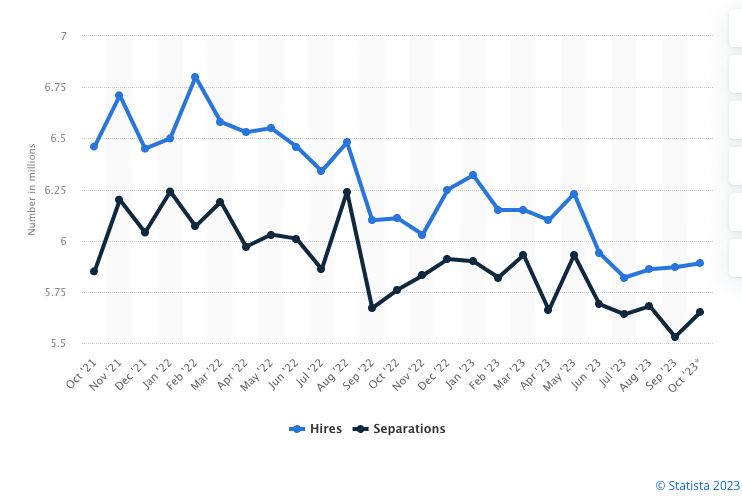This holiday season, I’m stepping away from my usual writing to bring you some of the top-read posts from 2023. Enjoy!
What Email Subject Lines are Getting the Best Candidate Response?
Recruiters love to talk email subject lines! I think I could run my response data every month, and it would easily be my most-read post each month. It’s part of the secret sauce of talent acquisition, especially as ultra-low unemployment continues to make it very difficult for recruiters to get responses for candidates.
G*d Dammit, Tim! Just give us the secret magic subject lines so I can use them!
See? It’s like giving out that first hit for free! You give them a little taste, get them addicted, and now they can’t live without it. You start feeling itchy, so I’ve heard, and you can’t focus on anything but those free guaranteed-to-work subject lines!
Calm down. I got you, baby.
Try these on for size:
- “We need to talk” – Like any good subject line, this comes from a place of personal psychology. Usually, when you see this in a message, it’s not a positive thing. Most likely, you’re in trouble, or you’re getting broken up with. Which, like any good subject line, is why this is so good. This gets extremely high open rates because it triggers something personal in people.
- <Just Your Last Name> – It still works as well as any subject line I’ve tested over the years. I use this one more than any other subject line in my toolbox, and 60% of the time. It works every time! This works because no one does it, so the person does not view it as spam.
- <A question that speaks to someone’s expertise> – This works because most of us have this psychology of wanting to help others and show off all at the same time. “Hold my beer. I need to show this person how smart I am, and make myself feel good that I help others…” A good example of this might be something like: “Tim, Can you help me with a recruiting issue I’m having?”
- <Salary Data Subject Line, Personalized> – Why does someone change jobs? Nope. You’re mistaken. It has very little to do with their manager. It’s most likely someone else has shown them they can make more money by making this change. At least, that’s what all “the new” data is showing! “Software Engineers are getting 28% salary increases by making this change.” “A Technical Recruiter in the ATL is making $140K.”
- <Anything specifically personalized to the receiver> – If you take 13 seconds to look at the resume or profile of a person you’re emailing, you can get something personal from that information to use. School mascots for men work well because you’re gambling that person is a sports fan of the school they graduated from. Or maybe you saw a post they like some certain professional team. “Go Green!” because I’m a Michigan State fan would get me to open that email every time.
Honestly, most of these subject lines work simply because they just don’t suck. 90% of recruiters still use lame subject lines like “I’ve got a great opportunity I would like to discuss with you” <vomit face emoji>! Actually, the vomit-face emoji alone in your subject would be a great subject line to test!
Try these out and let me know how they work.
Also, if you’ve found one that works great, help a brother out and share it in the comments below!
Posted on by Tim Sackett

